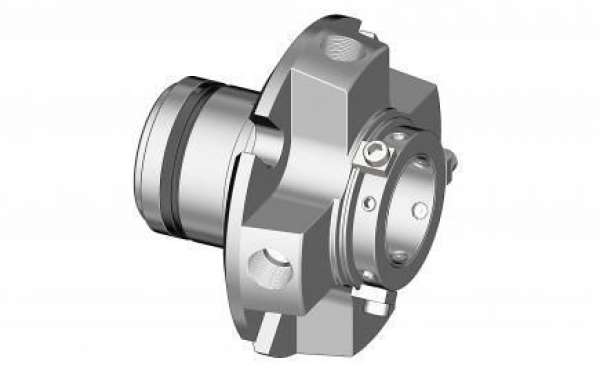At present, there are many types of materials used as friction pairs for mechanical seals. Commonly used non-metallic materials are graphite, polytetrafluoroethylene, phenolic plastics, ceramics, etc. Commonly used metal materials are cast iron, carbon steel, chromium steel, chromium-nickel steel, bronze, and cemented carbide. In addition, there are surface treatments such as surfacing, sintering, spraying, and composite processes to change or improve the surface properties of metal materials or friction pairs to make mechanical seal friction pair materials. All kinds of materials have certain characteristics. When choosing the material of the friction pair of the mechanical seal, the advantages and disadvantages should be avoided, and they should be used reasonably according to the specific working conditions.

Material of friction pair of mechanical seal:
Graphite is one of the most widely used materials in mechanical seal friction pair materials. Because it has many unique excellent properties.
(1) Higher thermal conductivity. Next to silver, copper, and aluminum, it is the only non-metallic material that has a high thermal conductivity much higher than some metals (such as Stellite and Hastelloy, etc.). Therefore, the generated friction heat can be dissipated in time, thereby reducing the temperature of the sealing end face, which is very necessary to improve its reliability and service life.
(2) Lower coefficient of linear expansion. When the temperature rises, its small thermal deformation is very beneficial to maintaining the parallelism of the sealing end faces
(3) Good corrosion resistance. Its chemical stability is very good, stable in the air below 400 ℃, except for strong oxidizing media such as chromic acid, concentrated sulfuric acid, and halogen elements, it is resistant to corrosion by other acids, alkalis, salts, and all organic chemicals.
(4) Excellent self-lubricating properties. Because the graphite is transferred to the metal surface layer by layer when the graphite and the metal material are relatively rubbed, the relative friction between the metal and the graphite is formed, and it also has a low friction coefficient.
(5) The tensile strength is low and it is a brittle material. Due to its low hardness, it is often used as a soft ring in a friction pair, which can be easily processed for various mechanical processes. However, graphite has the characteristics of large porosity and low mechanical strength. In order to make up for this shortcoming, methods such as multiple impregnations or carburizing of sintered graphite can be used. It is very important to choose the right impregnating agent. At present, the commonly used impregnating resins are phenolic, epoxy, and furan resins, etc., and the commonly used impregnating metals are bronze, babbitt, lead, aluminum, etc. When the use temperature is less than or equal to 170°C, the impregnating resin is selected; otherwise, the impregnating metal is selected.
Impregnating resin has good corrosion resistance. Phenolic resin has good acid resistance, epoxy resin has good alkali resistance, and furan resin has acid and alkali resistance. Therefore, impregnated furan resin graphite is most commonly used. The static ring in 32JF is furan resin material.
Carbide is another widely used friction pair material in mechanical seals. The cemented carbide here is mainly tungsten carbide (WC), and the commonly used WC-Co is the class. WC-Co is made of extremely hard refractory tungsten carbide and Co as a binder by powder metallurgy pressing and sintering. WC-Co has extremely high hardness and strength, good wear resistance and particle erosion resistance, high thermal conductivity, low linear expansion coefficient, and certain corrosion resistance, and can withstand sulfuric acid and hydrofluoric acid at ordinary temperatures. As well as corrosion such as caustic soda at the boiling point, it is not resistant to hydrochloric acid and nitric acid. However, WC-Co materials have low impact toughness and high brittleness, are difficult to machine and are expensive.
The above is the introduction of the material selection of the friction pair of the mechanical seal, I hope it will be helpful to everyone. Akman Seals is a supplier of mechanical seals that sells products with guaranteed quality and worth choosing. If you are interested in mechanical seals, you can pay attention to our website.




